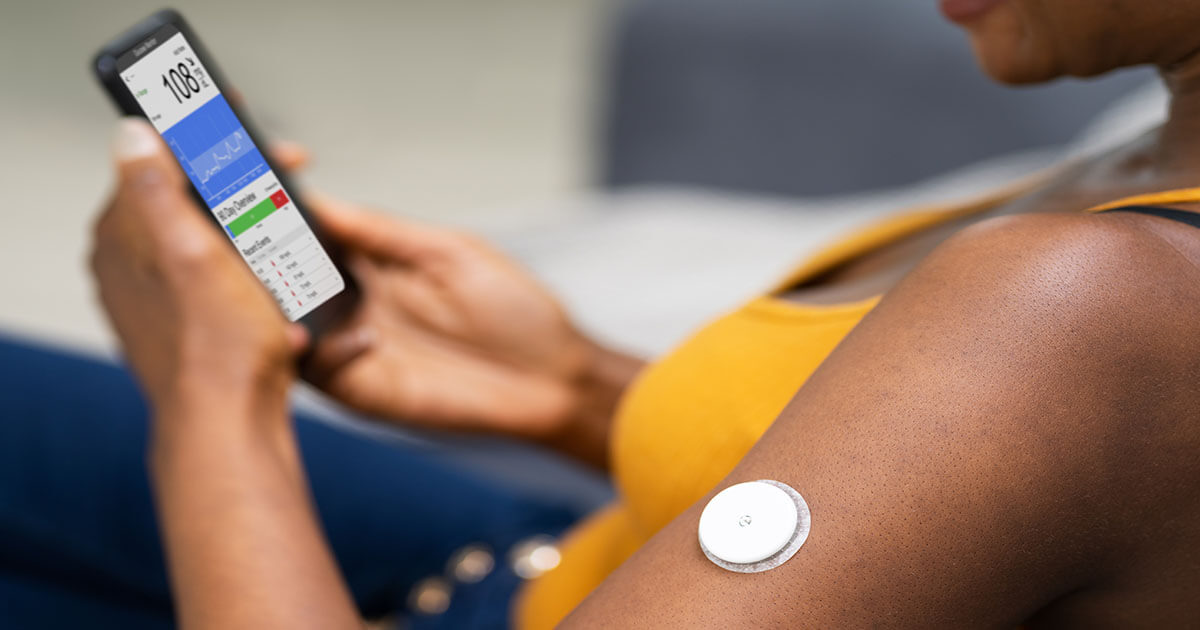The Families with Diabetes National Network (FWD NN) was first conceived in 2012 as a parent reference group for the National Children and Young People’s Diabetes Network (www.cypdiabetesnetwork.nhs.uk) with the aim of providing a forum for communication between the network and the parents of children and young people with diabetes. The National Children and Young People’s Diabetes Network comprises 11 regional networks in England and Wales. The Paediatric Diabetes Network Coordinator (PNCo) in each of these regions recruits two or more FWD NN parent representatives who attend regional network meetings to represent the views of families living with diabetes.
Family is an important part of the network’s identity because a diagnosis of diabetes in a child has an effect on the whole family – not only parents but also brothers, sisters and grandparents. To enable the network to represent a wide variety of families there are Facebook groups for each network region and connections with local support groups and clinics via the PNCos. Facebook enables us to reach families who do not go to more formal meetings and also allows us to share regional and national documents with our 2000 Facebook group members across the regions.
Facebook is used increasingly by parents of children with diabetes for mutual support and to share information. It is free to use and convenient for parents who can go online in the evening once children are in bed. Parents wishing to join are all messaged to ensure that their child either lives or receives treatment in the relevant region. The reasons for joining vary enormously. Some have newly diagnosed children and are looking for support, while others are old hands who are involved in advocacy and fundraising, and want to share their experience. There are those who are unhappy with an aspect of their medical or school care, and others who have solved similar problems, found excellent care and would like everyone to have the same.
Regional network groups offer the opportunity to connect with local families and find out about local events. Those that run local support groups can use them to find new members and, consequently, the network’s reach goes beyond Facebook to people who prefer to meet in person in small groups. With the help of the PNCos, the FWD NN has also started to arrange regional meetings for parents. These meetings are actively promoted through clinics in the hope of reaching as many different families as possible. The network also asks families about their experiences through support groups and Facebook pages, and collates their responses.
This year the FWD NN has carried out surveys into:
- The use of out-of-hours services.
- The prescribing, use of and training in the use of glucagon rescue kits in schools and at home, and how clinics provide this education.
- Health outcomes.
It has also:
- Produced a document on transition and what families want. It has been shared with the National Children and Young People’s Diabetes Network and the National Clinical Director for Diabetes and Obesity at NHS England.
- Acted as a reference group for the Diabetes UK school pack.
- Actively promoted through our Facebook groups Diabetes UK’s Type 1 Diabetes: Make the Grade campaign, the Care in School helpline, the 4 Ts campaign and the Disability Living Allowance toolkit.
- On behalf of the network of dietitians working with children and young people with diabetes, asked parents for feedback on whether they have been taught carbohydrate counting at diagnosis.
Health outcomes survey
The FWD NN’s most recent survey into health outcomes that are important to families was proposed by the National Children and Young People’s Diabetes Network. While the main clinical outcome measured is HbA1c, clinicians wanted to better understand the perspective of patients and carers. The concept of health outcomes is a difficult one to convey, especially to newly diagnosed families, and the network was keen to avoid predetermining the results by offering example responses or presenting a list of possible options. We opted for free text answers and, after much discussion within the networks with both healthcare professionals and parents, we selected the following broad question:
“Our healthcare teams have asked us to find out what matters to parents most in terms of outcomes for their children with diabetes, but outcomes can mean anything that is important to you. When thinking about your child with diabetes, what worries you most? Please let us know by taking this five-question survey.”
The questions asked were:
- The age of the child or young person.
- Age at diagnosis.
- Clinic attended.
- Then the initial question above (“what worries you most?”) was divided into short- and long-term worries. Up to three answer boxes were provided so that respondents could prioritise up to three worries and list them in order of importance. Most respondents made full use of the three boxes.
A limit of one line of text was decided upon to avoid lengthy responses that would have made analysis difficult. A link to the survey was posted on Facebook and shared with all the regional network groups for parents as well as the large national support groups including Children with Diabetes. A separately worded survey was also shared in one group for children and young people with diabetes. Responses were received from 535 parents, along with 78 children and young people. Responses came from a wide range of ages and age at diagnosis, all the regional networks and 164 clinics, with at least one response from almost every paediatric diabetes clinic.
Short-term worries
When all the responses to the question about short-term worries were combined, the largest category identified was “care at school and access to education” (Figure 1). This reflected parents’ very real concerns about the safety of their children at school and their ability to study, learn and take exams. “Hypos” during the day, hypos at night and severe hypos were all presented as separate categories as they provoke quite different fears for families but, had they been combined as a single category, they would have outweighed anxieties about school education.
The psychological and emotional impact of diabetes also featured high on the list of parental worry, with concern that the burden of diabetes care was causing depression and anxiety in their children. The sixth category – diabetes control – reflected parents’ worries about swinging blood glucose levels (highs and lows) and their impact on everyday life, rather than HbA1c, which was only mentioned specifically by a small number or parents.
If we look in more detail at the short-term worry that most parents gave the highest priority, hypos at night was mentioned the most followed by hypos generally and then severe hypos and seizures (Figure 2). Hypoglycaemic episodes, in all their forms, are clearly an area of major concern for families.
Long-term worries
When asked about the long-term picture, it is not surprising that complications were by far the largest category (Figure 3). The second largest category, however, was anxiety about the child or young person taking care of themselves and this also links into the fifth category of worry about university and/or living alone. The psychological and emotional impact of diabetes was again high up on the list of concerns. As mentioned previously, responses were unprompted leaving parents free to identify any worries that were important to them. Inevitably there were several replies that did not fit into the larger categories so these were treated as “other” and formed a large category demonstrating the wide range of areas that diabetes can affect. They included a myriad of concerns such as in-patient care, the future of the NHS, weight gain, sport management, the training of healthcare teams, other autoimmune conditions, benefits, sibling issues and sore fingers.
Responses from children and young people
A smaller number of children and young people (n=78) responded to the survey perhaps owing to the smaller number of children and young people old enough to take part and be actively involved in Facebook groups. Their short-term worries were similar to those reported by the parents, with severe hypos featuring strongly together with hypos at night, exams and school (Figure 4). High blood glucose and diabetic ketoacidosis were perhaps more of a concern for children and young people, and the psychological and emotional impact was reflected in worries such as “being treated differently”, “missing out” and “being judged”.
The long-term worries were more surprising. Although complications, especially eyesight, were areas of considerable concern, the most frequently mentioned worry was about not being able to have children (Figure 5).
Conclusions
Overall this survey represented the views of more than 600 people. There were many varied responses to the essential question: “What worries you most?” There were many topics touched upon that concern families living with diabetes, with a surprising degree of consensus. Hypoglycaemia, in all its most worrying manifestations, was an overarching worry for families in the short term, together with care at school and the ability to access education. Set against this is the very real long-term worry around complications. This is the balance that families have to live with on a day-to-day basis.
The survey results were presented to the National Children and Young People’s Network in December, and to several of the regional networks subsequently. We have been impressed by the level of interest the survey has generated and very pleased to hear that the network leads are looking at ways to develop more patient-centred health outcome measures using our information. There has been a great deal of work already on building multidisciplinary teams in paediatric diabetes and improving care processes, but there is still much to do to improve health outcomes, including those that are important to families. The increase in the number of psychologists working in paediatric diabetes is especially to be welcomed in starting to address the considerable psychological impact of diabetes. Many regional networks are already working to address care in schools, which is well understood to be a key issue for families. In some regions, healthcare teams are also looking at ways to address the anxiety around hypoglycaemia by exploring the nature of families’ concerns and asking how experiences of hypoglycaemia, especially severe episodes, can affect attitudes to blood glucose control.
In this age of social media and internet access, there is no possibility of concealing the nature of serious hypos from families, so it is key that healthcare teams and families are able to openly share information. With greater understanding comes greater empathy and empowerment for families living with diabetes – this is key to achieving the best health outcomes.




NHSEI National Clinical Lead for Diabetes in Children and Young People, Fulya Mehta, outlines the areas of focus for improving paediatric diabetes care.
16 Nov 2022